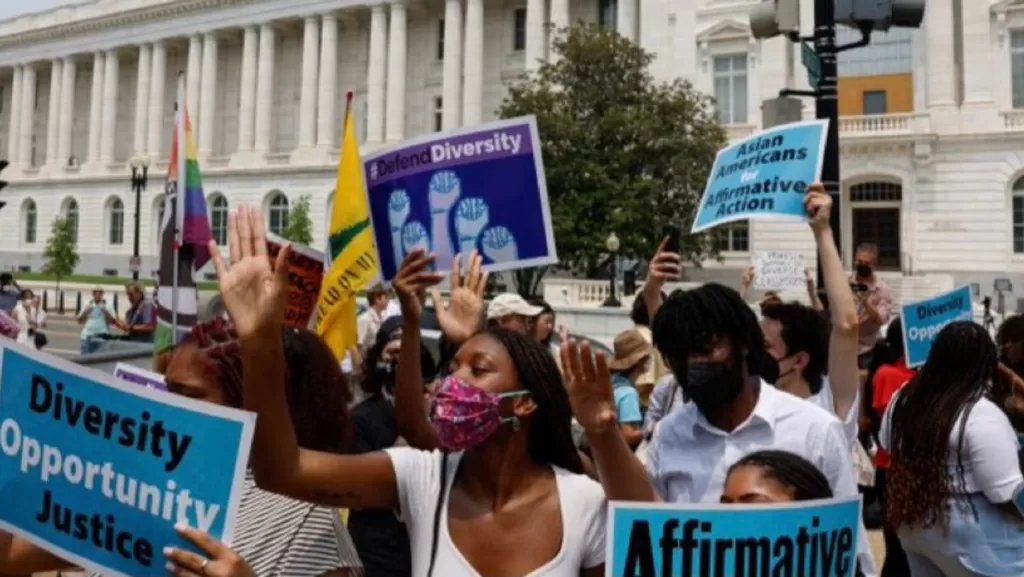4 things to know for June 30: Affirmative action, Economy, Trump, France

1. Affirmative Actions
The Supreme Court says colleges and universities can no longer take race into consideration as a specific factor in admissions, a landmark decision that overturns long-standing precedent historically benefiting Black and Latino students in higher education.
However, the ruling still allows colleges and universities to consider an applicant’s discussion of how race has affected their life as long as it is “concretely tied” to a “quality of character or unique ability” that the applicant possesses. Dissenting members of the high court insisted it would still make it practically impossible for colleges to consider race at all.
Civil rights leaders and education advocates say the ruling will be damaging to educational institutions. The White House has been preparing for months for this eventuality, and President Joe Biden has directed the Department of Education to develop a list of best admissions practices for colleges to maintain a diverse student population. Affirmative action has been in place since the 1960s as a tool to prevent discrimination at selective institutions, many of which historically only admitted White students.
2. Economy
An onslaught of economic data released Thursday has buoyed US markets. Gross domestic product, the broadest measure of economic output, increased at an annualized rate of 2% in the first quarter, surpassing economists’ predictions. Separately, initial jobless claims fell last week to 239,000, underscoring the labor market’s strength. The Federal Reserve also released the results of its annual “stress test” of the largest US banks on Wednesday, which boosted bank stocks overall.
The Fed concluded the banks have sufficient safeguards in place to weather a severe recession while continuing to lend to households and businesses. However, the housing market is showing signs of slowing. Mortgage rates have gone up while pending home sales dropped more than expected.
3. Trump
New developments are unfolding in former President Donald Trump’s various legal battles. The special counsel’s office is continuing to investigate Trump’s handling of classified documents after his presidency ended, despite the former president’s indictment last month.
That includes continued grand jury activity in Florida and inquiries of witnesses, though it is not yet clear what aspects of the investigation prosecutors are still pushing toward. In general, it’s not unheard of for investigators working a case to continue asking questions following the filing of initial charges — though it is unusual since Trump is still vying for the 2024 Republican presidential nomination. Top Trump aide Susie Wiles has met numerous times with federal investigators involved in the probe and was allegedly shown a classified map by Trump after he left office. Meanwhile, former Trump campaign official Mike Roman is cooperating with prosecutors in the ongoing criminal probe related to efforts to overturn the 2020 election.
4. France
More than 400 people were arrested across France Thursday as a wave of protests swept the country for a third night following the fatal police shooting of a teenage boy that was captured on video. Unrest broke out Tuesday just hours after a police traffic stop in Nanterre resulted in the killing of a 17-year-old named Nahel. The incident has raised questions about whether racism played a role in his death, and whether the police officer who shot him was acting illegally.
Also Thursday, an estimated 6,000 people joined a march to honor the teen. President Emmanuel Macron will reportedly hold a crisis meeting today for the second day in a row following the violence and has urged citizens to let the justice system handle the situation.






